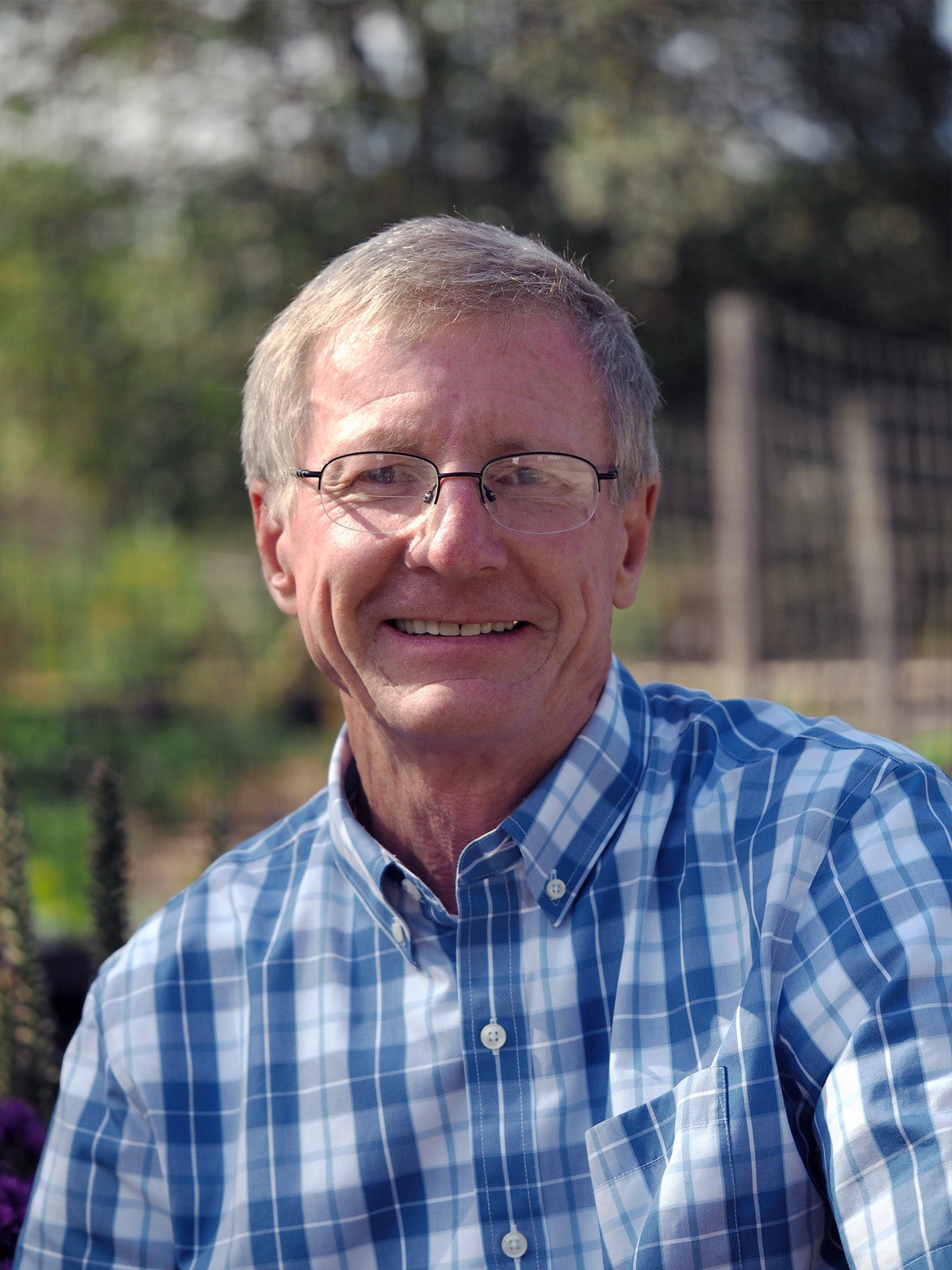- Professor
- Phone: 401.874.5998
- Email: stevealm@uri.edu
- Office Location: Woodward Hall, Room 212
- Website
Biography
Interested in studying insect behavior in the field (bees and pollination, bumble bee nesting, antlions, spider wasps), chemical ecology of insects, and least toxic control of pests (entomopathogenic nematodes, bacteria, fungi).
Research
My program of scholarly activity at present is focused on the biology of bees and pollination ecology.
- Elizabeth Varkonyi (M. S. 2022) surveyed the bumble bees of Rhode Island and their floral visitation. This research has revealed that of the twelve historically present bumble bees in RI, we have only been able to find six. Liz’s research has also revealed the importance of red clover to Bombus fervidus, one of the declining bumble bee species in Rhode Island.
- Casey Johnson (M. S. 2022) is evaluating NRCS funded pollination plantings, researching novel methods for control of varroa mites of honey bees as well as water collection by honey bees.
- Julia Vieira (M. S. 2023) researched bee visitation to four clovers and self-heal establishment methods as well as bumble bee nesting, and varroa mite control
- Steven Sipolski (M. S. 2019) developed a “bee friendly” Japanese beetle trap that captures significantly fewer bees (as bycatch) than the standard trap and lure system. Steven’s research was acknowledged on the front page of Entomology Today Sept. 23, 2019.
- Sara Tucker (M. S. 2018) determined that nectar robbing of blueberry flowers by the large carpenter bee did not negatively affect fruit size or sugar content. Her paper was awarded the 2nd runner up best paper in 2019 by the editors of Environmental Entomology, Reviewer’s Choice Award, Environmental Entomology/ESA. Sara was recognized and invited to give a poster presentation of her research (see Tucker et al. 2019b) at the Entomological Society of America Annual Meeting.
- Zachary Scott (M. S. 2016) researched the most effective native bee pollinators of highbush blueberry in Rhode Island. Twelve Coastal Fellows have assisted the graduate students in these bee and pollination projects since 2014.
Education
Ph.D. The Ohio State University, 1985
M. S. SUNY College of Environmental Science and Forestry, 1979
B. S. SUNY College of Environmental Science and Forestry, 1976
Selected Publications
- Varkonyi, E. M., C.L. Johnson, J. J. Vieira, H. S. Ginsberg, S. J. Sipolski, G. Casabona and S. R. Alm. 2023. Bumble bees (Bombus spp., Hymenoptera: Apidae) of Rhode Island: species richness, relative abundance, and floral visitation. (in prep)
- Vieira, J. J., C. L. Johnson, E. M. Varkonyi, H. S. Ginsberg, K. L. Picard, M. K. Kiesewetter and S. R. Alm. 2022. Using surrogate insects in acid bioassays for development of new controls for Varroa destructor (Arachnida: Varroidae) J. Economic Entomol.115: 1417-1422.
- Baranowski, A. K., S. R. Alm and E. L. Preisser. 2020. Datana drexelii (Lepidoptera: Notodontidae) oviposition and larval survival on highbush blueberry cultivars. J. Econ. Entomol. 113: 1568-1571.
- Sipolski, S., S. W. Datson, M. Reding, J. Oliver and S. R. Alm. 2019. Minimizing bee (Hymenoptera: Apoidea) bycatch in Japanese beetle traps. Environ. Entomol. 48: 1203-1213.
- Tucker, S. K., H. S. Ginsberg and S. R. Alm. 2019. Effect of corolla slitting and nectar robbery by the Eastern carpenter bee (Hymenoptera: Apidae) on fruit quality of Vaccinium corymbosum L. (Ericales: Ericaceae). Environ. Entomol. 48: 718-726.
- Tucker, S. K., H. S. Ginsberg and S. R. Alm. 2019. Eastern Carpenter bee (Hymenoptera: Apidae) nest structure, nest cell provisions, and trap nest acceptance in Rhode Island. Environ. Entomol. 48: 702-710.
- Scott, Z., H. S. Ginsberg and S. R. Alm. 2016. Native bee diversity and pollen foraging specificity in cultivated highbush blueberry (Ericaceae: Vaccinium corymbosum L.) in Rhode Island. Environ. Entomol. 45: 1432-1438.
- Hampton, E., C. Koski, O. Barsoian, H. Faubert, R. S. Cowles and S. R. Alm. 2014. Use of early ripening cultivars to avoid infestation and mass trapping to manage Drosophila suzukii (Diptera: Drosophilidae), in Vaccinium corymbosum (Ericales: Ericaceae). J. Econ. Entomol. 107: 1849-1857.
Courses
PLS 312 Fruit Culture Practicum
BIO/NRS/ENT 388 Biology of Bees and Pollination Ecology
BIO/NRS/ENT 350 Field Entomology
ENT411/511 Pesticides and the Environment
ENT550 Insect Taxonomy and Systematics

